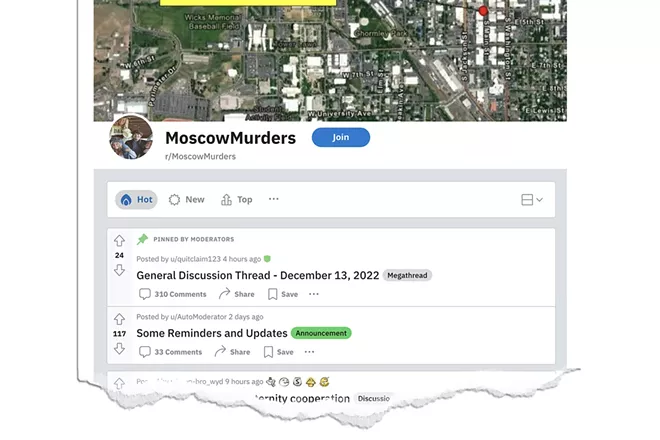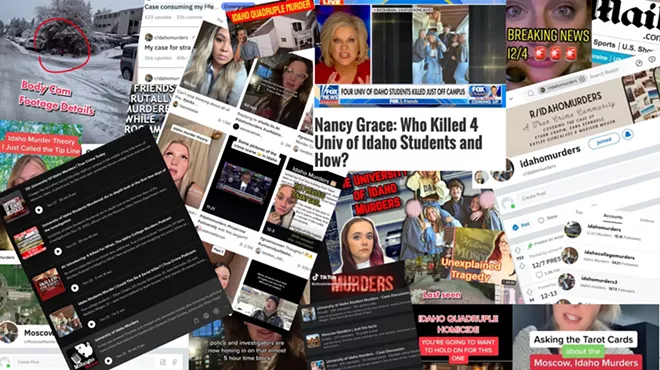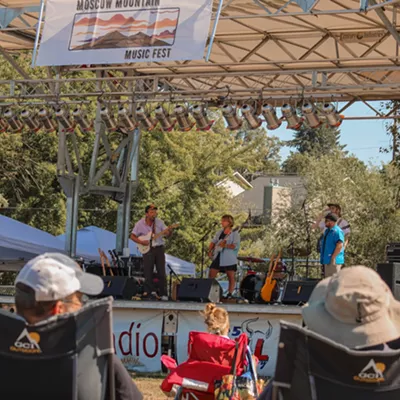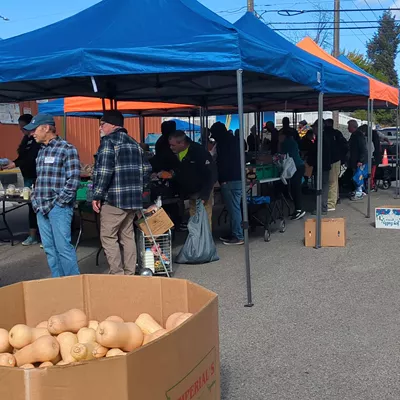It's been a month since four University of Idaho students — Kaylee Goncalves, Madison Mogen, Xana Kernodle and Ethan Chapin — were found dead, stabbed in their beds by an unknown assailant.
Investigators have yet to publicly identify a suspect or motive. On social media, people have rushed to fill the information vacuum.
On platforms like Reddit, Facebook and TikTok, tens of thousands of people have congregated to share theories and analyze satellite photos, apartment floor plans, news reports, and the social media history of people close to the victims.
In some cases, social media users are posting the full names, addresses and phone numbers of people they think are suspects in the killings. The family members and employers of the accused have also been named.
In a press release last Friday, police said investigators are "aware of the large amount of rumors and misinformation being shared as well as harassing and threatening behavior towards potentially involved parties."
Robbie Johnson, spokesperson for the Moscow Police Department, says she can't go into specifics about what the harassment and threats have looked like. But in general?
"It's bad. It's hurting people," Johnson says.
One Moscow resident who lives near the victims was targeted by online sleuths because he looked nervous during a national television news interview. He created a Reddit account and pleaded with members of the "R/MoscowMurders" forum to stop harassing him.
"You all need to stop blaming me for something [I] had nothing to do with," he wrote in a lengthy post. "Yes I am an incredibly awkward person but that does not mean I have killed or attempted to kill anybody."
The amateur online sleuths, the neighbor said, need to log off and "touch some grass."
Others identified by the internet sleuth mob have gone silent, setting their social media accounts to private.
Not every member of these online communities is responsible for the misinformation and harassment. There are lots of posts condemning that behavior, and Johnson says she was glad to see the department's Friday news release being shared in those communities, but she says it's hard to measure whether the flood of online misinformation has increased or decreased since the students' bodies were found.
Melissa Luck, news director at Spokane's ABC affiliate, KXLY-TV, thinks the rumors have only accelerated. Her newsroom has been flooded with messages from people speculating about the crime.
The last time a local crime got this much national attention was probably in 2005, Luck says, when serial killer Joseph Edward Duncan III murdered members of a Coeur d'Alene family. But that was before social media supercharged everything and created the "perfect storm," Luck says.
Luck worries about the noise drowning out any credible tips investigators might receive. She scoffs at the internet sleuths who didn't know Moscow existed a few weeks ago who are now driving through the town on Google Street View, hunting for clues.
"There has to be something more productive you can do," Luck says.
In a news statement, Moscow police warned that anyone engaging in threats or harassment, online or in person, could be "subjecting themselves to criminal charges."
But with rumors and threats flooding in from so many different platforms and communities, "it's really hard to trace back where it originated from," Johnson says. She adds that many of the accounts are also anonymous.
Even if people don't face criminal charges for harassment, they could still be risking a civil lawsuit for defamation.
Defamation cases can be complicated, says Cory Carone, an Idaho lawyer. He's currently representing a North Idaho drag performer who is suing for defamation after being falsely accused online of flashing minors during a Pride in the Park event this summer. (It's a long story.)
To qualify as defamation, a statement generally needs to be false, published to an audience and cause harm to a person's reputation, Carone says. The statement also needs to be an assertion of fact — not opinion, speculation or theory. Many of the online detectives seem to be toeing that line, but not necessarily crossing it.
Regardless, last month on Instagram Goncalves' sister, Aubrie, had a message for the online gumshoes: "To the people spreading completely false and irrational rumors — you need to stop." ♦



























